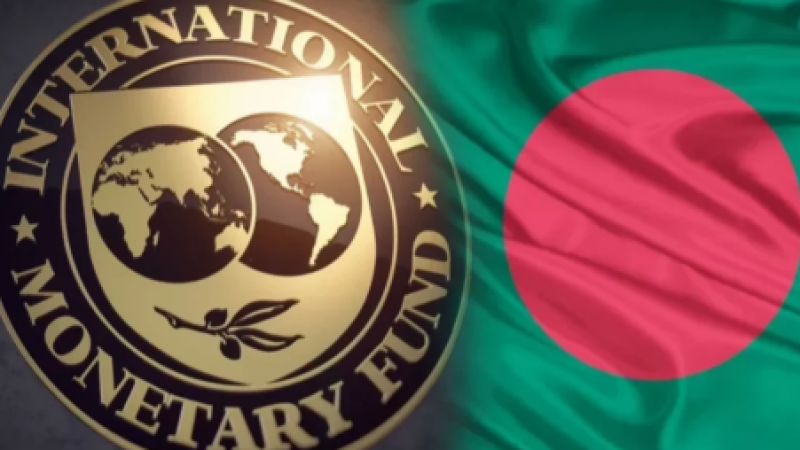- Intimidation or bloodshed cannot halt Bangladesh’s march to democracy |
- Khaleda Zia integral to an important chapter in BD history: Yunus |
- Enthusiasm marks Victory Day celebrations across Bangladesh |
- Dhaka-Delhi ties deep; to be shaped by trust, dignity, mutual respect |
- EU deploys election observation mission to Bangladesh |
Bangladesh to Push for Swift WB, IMF Disbursement at Meetings

Bangladesh is set to urge the World Bank (WB) to fast-track the remaining $500 million in budget support and secure additional concessional loans under the new three-year soft-lending scheme beginning in July.
During the World Bank-IMF Spring Meetings from April 21-26, Bangladesh will present detailed reform plans addressing exchange rate and revenue management—key conditions set by the IMF for its $4.7 billion loan package.
To date, the IMF has disbursed $2.3 billion of the pledged amount in three installments until June last year, with the next $1.3 billion yet to be confirmed for release by June 2025.
Push for Additional Funding
In addition to requesting the early disbursement of committed funds, Bangladesh will seek further financing for infrastructure projects, health, education, and human development, according to Economic Relations Division (ERD) officials.
A $650 million loan agreement is expected to be signed with the World Bank for developing marine infrastructure for the Bay Terminal deep-sea project, including a climate-resilient 6-km breakwater. The loan, approved in June 2024, will help protect the harbor from tidal impacts. Discussions will also cover the World Bank’s previous commitment of over $1 billion for river protection around Dhaka, with agreements potentially signed by October.
Key attendees at the meetings include Financial Advisor Salehuddin Ahmed, Bangladesh Bank Governor Ahsan H Mansur, ERD Secretary Md. Shahriar Kader Siddiky, and Finance Division Secretary Khairuzzaman Mozumder.
Bangladesh Eyes More Concessional Loans
While Bangladesh now qualifies for blended financing, it will push for more concessional loans under the IDA-21 soft-lending phase, which runs until June 2028. According to the World Bank's latest portfolio update, IDA commitments stand at $14.5 billion across 51 ongoing projects, with $9.2 billion yet to be disbursed. Disbursements for FY25 reached $979 million by April 10.
In parallel with World Bank talks, Bangladesh delegates will also meet with US Treasury and Federal Reserve officials.
Macroeconomic Challenges & Policy Measures
A briefing by the Finance Division highlights critical macroeconomic challenges requiring strategic policy interventions. While the exchange rate remains stable, volatility risks may rise if remittance inflows or exports decline. Rising import costs could further strain the economy’s growth objectives.
To control inflation, the government has implemented contractionary monetary and fiscal policies, affecting household purchasing power. While inflation-control measures have yielded results—helped by low inflation in major import sources like China and India—the economy still faces challenges like supply chain disruptions, high transport costs, and corrupt practices diminishing government efforts.
Since the Russia-Ukraine war, Bangladesh has grappled with high inflation, compounded by tight fiscal and monetary policies. Economic growth is projected to remain below 6% next year but may recover to over 6% by FY28.
Structural Weaknesses & LDC Graduation Strategies
The report highlights fiscal constraints due to falling revenue collection and rising debt servicing costs. The private sector remains sluggish, hindered by energy shortages, high borrowing costs, and financial sector weaknesses. Climate risks also threaten key sectors like agriculture. As Bangladesh prepares for LDC graduation, comprehensive strategies for market access and concessional financing are crucial for sustainable growth.
Infrastructure Development & Corruption Concerns
While large-scale infrastructure projects are seen as key to unlocking economic potential, corruption allegations continue to mar these initiatives. The interim government is focused on eliminating politically motivated projects, shifting the focus toward social investments like health and education.
To improve tax revenue, the government has introduced measures like digital transformation, expanding the direct tax base, and reducing tax exemptions. However, Bangladesh’s tax-to-GDP ratio remains low compared to other Asia-Pacific nations, highlighting the need for comprehensive tax reforms.
Country Performance Will Matter
Zahid Hussain, former lead economist at the World Bank's Dhaka office, stated that any increase in IDA allocation for Bangladesh will depend on its performance in the Country Policy and Institutional Assessment (CPIA). Bangladesh aims to improve its scores, particularly in governance, to secure enhanced funding.
Reforms in sectors like power and anti-corruption have already been undertaken, with further steps planned to boost governance and institutional performance.
On the issue of budget support, Hussain emphasized that securing such assistance from the World Bank would require clear progress in meeting IMF guidelines, such as separating tax policy from tax administration and reducing tax exemptions.

